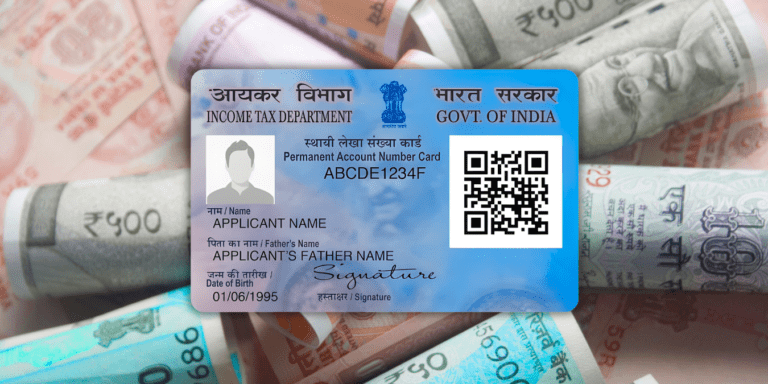
Tracking Hidden Info: India’s Bold Move Against Digital Tax Evasion and Companies Law Target Offshore Data in 2025
India’s 2025 tax reforms are closing digital loopholes with a vengeance! Shocking new powers let tax authorities chase hidden financial data on offshore servers, from cloud accounts to WhatsApp chats. Daily local backups and mandatory disclosures now trap tax evaders, while global cooperation via INTERPOL ensures no data stays out of reach. Curious how this affects your business? Uncover the suspenseful details of India’s bold fight against digital tax evasion and learn how to stay compliant before the April 2026 deadline!
In early 2024, a high-profile tax probe into a major Indian conglomerate stalled when investigators discovered its financial records were stored on a cloud server in Singapore, beyond their immediate reach. This loophole is now closed. With the 2025 reforms to the Income Tax Act and Companies Law, India has equipped its tax authorities with cutting-edge powers to access offshore server data, ensuring no financial trail escapes scrutiny. This blog post dives into how these reforms empower authorities, what they mean for businesses and actionable steps to stay compliant in this digital-first era.
Key Takeaways:
- From April 2026, Indian tax authorities can directly access company financial data even if the primary servers are located overseas.
- The Companies Act now mandates daily electronic backups of accounting records on Indian servers, making tax evasion harder.
- Companies using offshore data hosting must disclose foreign service provider details and local control arrangements.
- The new Income Tax Act, 2025, empowers officials to investigate digital evidence, including cloud records and personal virtual accounts, supported by forensic tools and international cooperation frameworks.
Why This Change? The Rise of Digital Tax Evasion
The shift to cloud-based accounting and offshore data storage has revolutionized business operations but also created new avenues for tax evasion. Companies have exploited jurisdictional gaps, storing sensitive financial data abroad to delay or dodge audits. With India’s digital economy booming in 2025, the Central Board of Direct Taxes (CBDT) and the Ministry of Corporate Affairs have prioritized closing these gaps to align with global transparency standards. The reforms aim to tackle unreported income, virtual digital assets (VDAs) like cryptocurrencies, and benami transactions hidden in offshore servers.
The Scale of the Problem
- Digital Transactions Surge: Over 60% of Indian businesses now use cloud-based accounting, with 25% relying on foreign servers.
- Tax Evasion Trends: Recent CBDT data shows ₹500 crore in unaccounted income traced to offshore digital records in 2024 alone.
- Global Context: Countries like the US and UK have similar digital enforcement laws, but India’s rapid adoption reflects its urgency to curb black money.
New Companies Act Rules: Mandating Local Data Backups
The Companies (Accounts) Amendment Rules, 2025, introduced under the Companies Act, 2013, mark a seismic shift in corporate compliance. These rules target offshore data storage to ensure tax authorities have seamless access to financial records.
Key Changes in 2025
- Daily Backup Mandate: All Indian companies must maintain daily backups of books of account and related documents on servers physically located in India, even if primary storage is offshore.
- Foreign Hosting Disclosures: Companies using overseas service providers must annually report to the Registrar of Companies (RoC):
- Name and address of the foreign provider.
- Details of the person controlling access to the data.
- IP address and location of cloud servers.
- Audit Trail Requirements: Accounting software must now include tamper-proof audit logs to track all edits and deletions.
- Real-Time Access: The RoC can demand immediate access to backups for spot checks or investigations.
Comparison: Pre-2025 vs. 2025 Rules
| Rule/Requirement | Pre-2025 | 2025 Onwards |
| Backup Frequency | Periodic, discretionary | Daily, mandatory on Indian servers |
| Foreign Hosting Disclosure | Optional, vague | Mandatory, detailed controller info |
| Audit Trail Logging | Optional | Mandatory, software-integrated |
| RoC/Evidence Access | Slow, often contested | Real-time, verifiable |
Implications for Businesses
- Infrastructure Overhaul: Companies relying on foreign cloud providers like AWS or Google Cloud must establish India-based backup systems.
- Compliance Costs: Small and medium enterprises (SMEs) may face initial costs for setting up local servers or upgrading software.
- Global Operations: Multinational corporations (MNCs) with enterprise resource planning (ERP) systems must align with India’s rules without violating foreign data laws.
Income Tax Act 2025: Sweeping Digital Investigation Powers
The Income Tax Bill, 2025, passed on August 12, 2025, and effective from April 1, 2026, overhauls the 1961 Act to address digital-era tax evasion. Section 247 expands search and seizure powers into “virtual digital spaces,” defined broadly to include emails, cloud storage, social media, and encrypted platforms.
Enhanced Digital Evidence Powers
- Broad Search Authority: Tax officers can search any premises, device, or virtual space suspected of holding financial data, including personal emails and WhatsApp chats.
- Override Access Codes: If access is denied, officers can bypass passwords or encryption to retrieve data.
- Questioning on Site: Anyone present who can access systems (e.g., IT staff) can be questioned under oath, expanding beyond just company executives.
- Data Preservation: Officers can issue “freeze orders” to prevent data tampering during investigations, with forensic tools to verify USB logs or server access patterns.
Global Cooperation for Offshore Data
- INTERPOL’s G-8 24/7 Network: If data is stored abroad, authorities can leverage this network for urgent preservation and retrieval.
- AI and Forensics: Tax officials are trained in blockchain analysis, server log interpretation, and AI-driven audit trails to detect tampering.
- Real-World Impact: In 2024, WhatsApp messages helped trace ₹200 crore in unaccounted money, while Google Maps data pinpointed hidden cash locations.
Privacy Concerns and Safeguards
The broad definition of “virtual digital space” raises privacy concerns, especially after the Supreme Court’s 2017 Puttaswamy judgment affirming privacy as a fundamental right. Critics argue the lack of judicial oversight and vague “reason to believe” standard risks misuse. Suggested safeguards include:
- Mandatory judicial warrants for digital searches.
- Clear data protection protocols to limit use to specific investigations.
- Transparency in sharing “reason to believe” with taxpayers post-search.
How-to Steps: Complying with the New Rules
To navigate the 2025 reforms, businesses must act swiftly to align with the Companies Act and Income Tax Act requirements. Here’s a step-by-step guide:
- Audit Data Storage Locations
- Map all financial data storage, including cloud servers and third-party providers.
- Identify overseas hosting and assess compliance gaps.
- Set Up Daily Local Backups
- Deploy automated backup systems to Indian servers, ensuring encryption and integrity.
- Test restoration processes monthly to avoid data loss risks.
- Update RoC Disclosures
- File accurate details of foreign providers, including IP addresses and data controllers, in annual RoC submissions.
- Maintain a real-time directory of cloud infrastructure.
- Adopt Audit-Trail-Ready Software
- Upgrade to accounting platforms with built-in, tamper-proof audit logs (e.g., TallyPrime, Zoho Books).
- Ensure all user actions are tracked and time-stamped.
- Train Teams for Investigations
- Avoid Common Compliance Pitfalls
- Don’t skip daily backups—non-compliance can trigger penalties or criminal probes.
- Avoid using non-auditable software or manual logs, which are now obsolete.
- Never alter or delete records after receiving a tax notice.
Pro Tips for Indian Businesses in 2025
- Strengthen IT Security: Use end-to-end encryption and role-based access to protect data while meeting compliance needs.
- Plan for Legal Holds: Implement systems to freeze backups during investigations, ensuring no accidental overwrites.
- Engage Cross-Border Experts: Consult legal advisors familiar with India’s laws and foreign regulations (e.g., GDPR) to avoid conflicts.
- Leverage AI Tools: Adopt AI-driven accounting software to auto-detect discrepancies and maintain audit-ready records.
Common Mistakes to Avoid
- Ignoring Backup Mandates: Missing daily backups can lead to fines or accusations of willful evasion.
- Weak Audit Trails: Non-compliant software risks invalidating financial records during audits.
- Underestimating Global Reach: Assuming offshore data is untouchable is risky with INTERPOL’s cooperation and forensic advancements.
- Delayed Disclosures: Late or incomplete RoC filings about foreign providers can escalate scrutiny.
Key Benefits of the Reforms
For the Government
- Stronger Anti-Evasion Measures: Direct access to digital records curbs black money and shell company abuse.
- Global Alignment: Matches OECD and G20 standards for financial transparency, boosting investor confidence.
- Efficient Enforcement: Real-time data access speeds up investigations and dispute resolution.
For Compliant Businesses
- Level Playing Field: Transparent companies gain trust from regulators, banks, and partners.
- Reduced Litigation Risk: Immutable audit trails can prove compliance during disputes.
- Market Advantage: Enhanced transparency strengthens credibility in equity and debt markets.
For Investors and Auditors
- Reliable Data: Daily backups and audit logs ensure accurate financial disclosures.
- Risk Mitigation: Transparent records lower the risk of investing in non-compliant firms.
Balancing Privacy and Compliance
The 2025 reforms, while effective against tax evasion, spark debate over privacy. Section 247’s broad powers, allowing access to personal digital spaces without warrants, clash with the Digital Personal Data Protection Act (DPDP), 2023. A 31-member parliamentary committee is reviewing these concerns, with recommendations due by early 2026. Businesses must balance compliance with protecting sensitive data, ensuring only relevant financial records are accessible.
Final Thought: Act Now to Stay Ahead
The tax game is changing fast in digital India. With authorities now empowered to trace every bit of data—whether tucked away on a Paris cloud or Mumbai data center—proactive compliance is the only winning strategy. Directors and CFOs: Review your data management playbooks, test your daily local backups, and don’t leave digital footprints to chance.
Indian businesses that align their policies today can focus on growth tomorrow—while the authorities chase down those still trying to hide in the (digital) shadows. Ready to audit-proof your compliance? Make backup integrity and cloud transparency top boardroom priorities now.
Call To Action: Ready to future-proof your business? Conduct a compliance audit, upgrade to audit-trail-ready software, and consult a tax expert to align with the 2025 rules. Don’t let hidden data become your liability—act now!

































